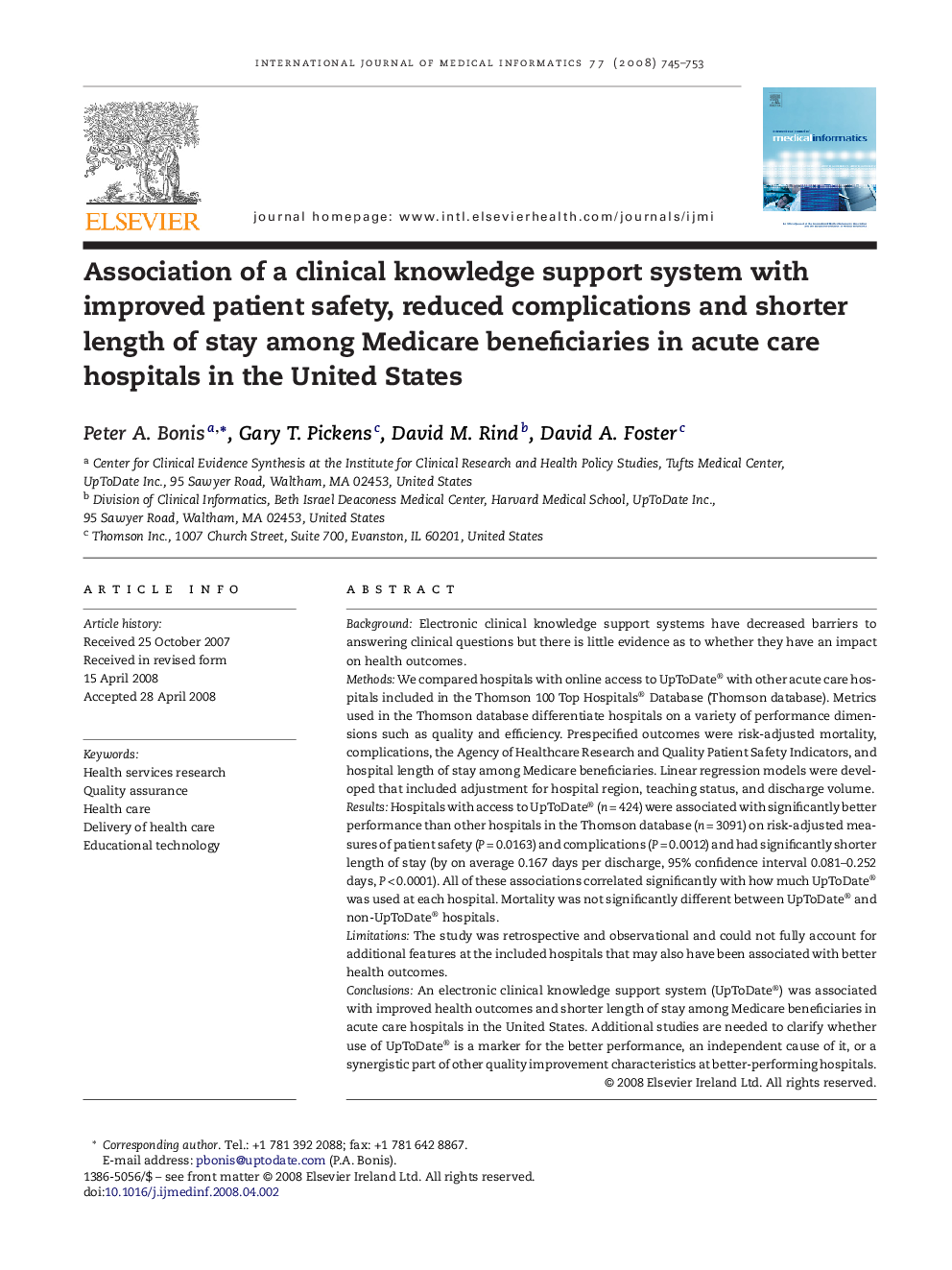| Article ID | Journal | Published Year | Pages | File Type |
|---|---|---|---|---|
| 517055 | International Journal of Medical Informatics | 2008 | 9 Pages |
BackgroundElectronic clinical knowledge support systems have decreased barriers to answering clinical questions but there is little evidence as to whether they have an impact on health outcomes.MethodsWe compared hospitals with online access to UpToDate® with other acute care hospitals included in the Thomson 100 Top Hospitals® Database (Thomson database). Metrics used in the Thomson database differentiate hospitals on a variety of performance dimensions such as quality and efficiency. Prespecified outcomes were risk-adjusted mortality, complications, the Agency of Healthcare Research and Quality Patient Safety Indicators, and hospital length of stay among Medicare beneficiaries. Linear regression models were developed that included adjustment for hospital region, teaching status, and discharge volume.ResultsHospitals with access to UpToDate® (n = 424) were associated with significantly better performance than other hospitals in the Thomson database (n = 3091) on risk-adjusted measures of patient safety (P = 0.0163) and complications (P = 0.0012) and had significantly shorter length of stay (by on average 0.167 days per discharge, 95% confidence interval 0.081–0.252 days, P < 0.0001). All of these associations correlated significantly with how much UpToDate® was used at each hospital. Mortality was not significantly different between UpToDate® and non-UpToDate® hospitals.LimitationsThe study was retrospective and observational and could not fully account for additional features at the included hospitals that may also have been associated with better health outcomes.ConclusionsAn electronic clinical knowledge support system (UpToDate®) was associated with improved health outcomes and shorter length of stay among Medicare beneficiaries in acute care hospitals in the United States. Additional studies are needed to clarify whether use of UpToDate® is a marker for the better performance, an independent cause of it, or a synergistic part of other quality improvement characteristics at better-performing hospitals.
